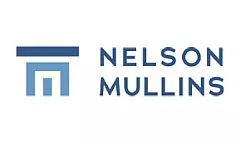- within Energy and Natural Resources topic(s)
Executive Summary
Increasing demand for power is a challenge facing utilities, customers, and regulators. One tool used by utilities to manage demand is "demand response" communications informing customers of actions they can take to reduce or shift energy consumption during peak hours.
On June 9, 2025, the Federal Communications Commission (FCC) issued a Declaratory Ruling in response to a petition filed by the Edison Electric Institute (EEI) confirming that when a customer gives a utility their phone number they give prior express consent under the Telephone Consumer Protection Act (TCPA) to receive non-telemarketing demand response calls and texts.
Background and TCPA Context
The TCPA generally requires prior express consent for certain calls and texts, unless the call is made for an emergency purpose. Broadly, the TCPA applies to "robocalls" made 1) using an autodialer or artificial or prerecorded voice to a wireless phone; and 2) using an artificial or prerecorded voice to a residential line. Of note, the TCPA covers text messages sent using an autodialer ("robotexts").
For those communications that include advertising or constitute telemarketing, callers must obtain prior express written consent and make several required disclosures. By contrast, providing a telephone number to a business is prior consent to receive informational calls and texts.
In the utility context, in 2016 the FCC clarified in another declaratory ruling (also in response to a petition by EEI) that utility customers consent to receiving informational robocalls and robotexts "closely related to the utility service" when they provide their phone number to the utility. At that time, "calls closely related to the service" included warnings about service outages, updates about service outages or service restoration, notifications of meter work, tree trimming or other field work directly impacting utility service, notifications about eligibility for subsidized or low-cost services, and information about potential brown-outs due to heavy energy usage. In 2016, the FCC did not discuss whether demand response communications were "closely related to utility service."
Confirming that Demand Response Communications are "Closely Related to the Service"
The FCC agreed with EEI that demand response communications are closely related to utility service and are covered by the consent given when a customer provides their phone number to the utility. Demand response communications are similar to the types of communications — including information about potential brownouts — previously determined by the FCC to be "closely related to utility service." In addition, the FCC concluded that demand response communications are useful to and welcomed by consumers in order to avoid potential losses of service. The ruling emphasizes that permitted demand response communications must be informational only and that the ruling does not extend to communications that introduce advertisements or constitute telemarketing.
What Utilities Need to Know
While demand response communications are considered "closely related to utility service," other communications do not fall into that category and may require additional consent and disclosures under the TCPA. For example, the FCC previously determined that messages about "enrollment in energy savings programs" are not closely related to utility service. The FCC also requires different consent for informational messages and advertisements or marketing, so utilities should be careful to obtain the correct level of consent for the message to be transmitted.
Utilities (and all businesses seeking to communicate by means of robocalls or robotexts) must continue to understand the requirements of the TCPA and incorporate TCPA compliance into their communications strategies.
The content of this article is intended to provide a general guide to the subject matter. Specialist advice should be sought about your specific circumstances.




